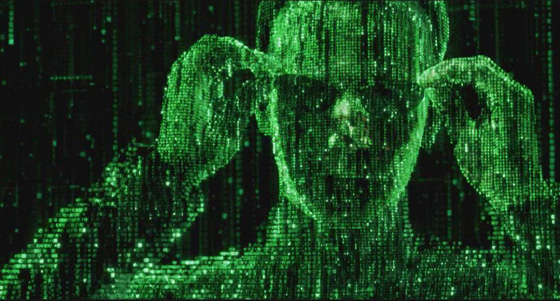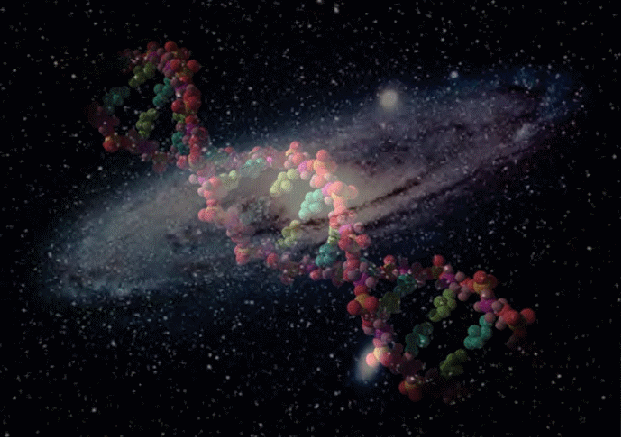Philosophy
 The scientific and philosophical progress of the past four centuries seems to have consistently undermined the notion that we have been created by God, a benevolent, omniscient and omnipotent intelligent designer (just remember, your biological sewage system runs through your fun parts :p), but this is all based on the assumptions that we are real and that we inhabit the only existing universe.
The scientific and philosophical progress of the past four centuries seems to have consistently undermined the notion that we have been created by God, a benevolent, omniscient and omnipotent intelligent designer (just remember, your biological sewage system runs through your fun parts :p), but this is all based on the assumptions that we are real and that we inhabit the only existing universe.
The first half of today's documentary, narrated by Lord Martin Rees, president of the Royal Society and author of books such as Six Numbers: The Deep Forces that Shape the Universe, explores the famous anthropic principle.
 The anthropic principle is the idea that the numerical constants governing the physical laws that govern our universe seem suspiciously and improbably well tuned to evolve life and intelligent creatures such as ourselves. If any of those numbers were just slightly different, the universe as we know it could not exist. Could this mean that God exists? Believers certainly think so, but then again, they'll believe just about anything :)
The anthropic principle is the idea that the numerical constants governing the physical laws that govern our universe seem suspiciously and improbably well tuned to evolve life and intelligent creatures such as ourselves. If any of those numbers were just slightly different, the universe as we know it could not exist. Could this mean that God exists? Believers certainly think so, but then again, they'll believe just about anything :)
Considering the logical consequences arising out of the anthropic principle, the second half of the documentary explores the implication that, based on what we know about our own intelligence, our very existence might actually be a simulation created by some intelligent agency not bound by the laws that constrain our existence, and that this simulation could be perfectly consistent with the coherence of our scientific experience of the world.
I think the simulation hypothesis would also explain why the god of the Old Testament is obsessed with people worshiping it: it's really some sexually deprived, socially awkward and insecure nerdy kid sitting at home playing with his super computer :)
But seriously, either we've constructed a logical but preposterously unrealistic argument, or you may really be living in something like The Matrix, and there's a good chance the latter might be true, as you are about to see.
Of course, what no one dares to claim is that this might be the only existing universe, and that, as improbable as it is, we just happened to hit the lottery, and that's why we are here talking about it...
Still, regardless of what the anthropic principle may tell us, there is a possibility that we are living in some sort of Matrix, as this chapter, written by Nick Bostrom (the philosopher in the documentary above), from More Philosophy and The Matrix suggests:
Check out the documentary The Matrix and Philosophy: Return to the Source to blow your mind some more.
.
- Sean Carroll Vs William Lane Craig - God And Cosmology
Does the universe need an explanation for its existence, or can it be understood as a self-containing system that does not require a transcendent explanation? Naturalists hold that, whatever the cause of the known universe, it is perfectly sensible to...
- Brian Greene - Why Is Our Universe Fined-tuned For Life?
Have you noticed that wherever Brian Greene goes, computer animations go with him? Well, this TEDTalk presentation is no exception :) I'm starting to wonder whether this might be the physicist equivalent of a comfort blanket... In any case,...
- To Infinity And Beyond
Apparently the title of this documentary also has something to do with Toy Story? Well, I haven't seen that movie, but I can tell you what this documentary is about... Infinity. The most obvious way to start thinking about infinity is through...
- This Is A Galaxy
Ideally, science works by the testing of hypotheses. In the real world, however, hypotheses can't always be tested directly, so scientists have to get creative and figure out indirect ways to see whether hypotheses are at least consistent with our...
- Philosophy Via Science Fiction
This is a valid venue but from the description below it is too narrow and should include earlier films, television series, and even older texts. "Learning philosophy with the help of sci-fi" by Greg Johnson February 18th, 2010 Penn Current In the film...
Philosophy
What We Still Don't Know - Are We Real?
 The scientific and philosophical progress of the past four centuries seems to have consistently undermined the notion that we have been created by God, a benevolent, omniscient and omnipotent intelligent designer (just remember, your biological sewage system runs through your fun parts :p), but this is all based on the assumptions that we are real and that we inhabit the only existing universe.
The scientific and philosophical progress of the past four centuries seems to have consistently undermined the notion that we have been created by God, a benevolent, omniscient and omnipotent intelligent designer (just remember, your biological sewage system runs through your fun parts :p), but this is all based on the assumptions that we are real and that we inhabit the only existing universe.The first half of today's documentary, narrated by Lord Martin Rees, president of the Royal Society and author of books such as Six Numbers: The Deep Forces that Shape the Universe, explores the famous anthropic principle.
 The anthropic principle is the idea that the numerical constants governing the physical laws that govern our universe seem suspiciously and improbably well tuned to evolve life and intelligent creatures such as ourselves. If any of those numbers were just slightly different, the universe as we know it could not exist. Could this mean that God exists? Believers certainly think so, but then again, they'll believe just about anything :)
The anthropic principle is the idea that the numerical constants governing the physical laws that govern our universe seem suspiciously and improbably well tuned to evolve life and intelligent creatures such as ourselves. If any of those numbers were just slightly different, the universe as we know it could not exist. Could this mean that God exists? Believers certainly think so, but then again, they'll believe just about anything :)Considering the logical consequences arising out of the anthropic principle, the second half of the documentary explores the implication that, based on what we know about our own intelligence, our very existence might actually be a simulation created by some intelligent agency not bound by the laws that constrain our existence, and that this simulation could be perfectly consistent with the coherence of our scientific experience of the world.
I think the simulation hypothesis would also explain why the god of the Old Testament is obsessed with people worshiping it: it's really some sexually deprived, socially awkward and insecure nerdy kid sitting at home playing with his super computer :)
But seriously, either we've constructed a logical but preposterously unrealistic argument, or you may really be living in something like The Matrix, and there's a good chance the latter might be true, as you are about to see.
Of course, what no one dares to claim is that this might be the only existing universe, and that, as improbable as it is, we just happened to hit the lottery, and that's why we are here talking about it...
Still, regardless of what the anthropic principle may tell us, there is a possibility that we are living in some sort of Matrix, as this chapter, written by Nick Bostrom (the philosopher in the documentary above), from More Philosophy and The Matrix suggests:
Check out the documentary The Matrix and Philosophy: Return to the Source to blow your mind some more.
.
- Sean Carroll Vs William Lane Craig - God And Cosmology
Does the universe need an explanation for its existence, or can it be understood as a self-containing system that does not require a transcendent explanation? Naturalists hold that, whatever the cause of the known universe, it is perfectly sensible to...
- Brian Greene - Why Is Our Universe Fined-tuned For Life?
Have you noticed that wherever Brian Greene goes, computer animations go with him? Well, this TEDTalk presentation is no exception :) I'm starting to wonder whether this might be the physicist equivalent of a comfort blanket... In any case,...
- To Infinity And Beyond
Apparently the title of this documentary also has something to do with Toy Story? Well, I haven't seen that movie, but I can tell you what this documentary is about... Infinity. The most obvious way to start thinking about infinity is through...
- This Is A Galaxy
Ideally, science works by the testing of hypotheses. In the real world, however, hypotheses can't always be tested directly, so scientists have to get creative and figure out indirect ways to see whether hypotheses are at least consistent with our...
- Philosophy Via Science Fiction
This is a valid venue but from the description below it is too narrow and should include earlier films, television series, and even older texts. "Learning philosophy with the help of sci-fi" by Greg Johnson February 18th, 2010 Penn Current In the film...
